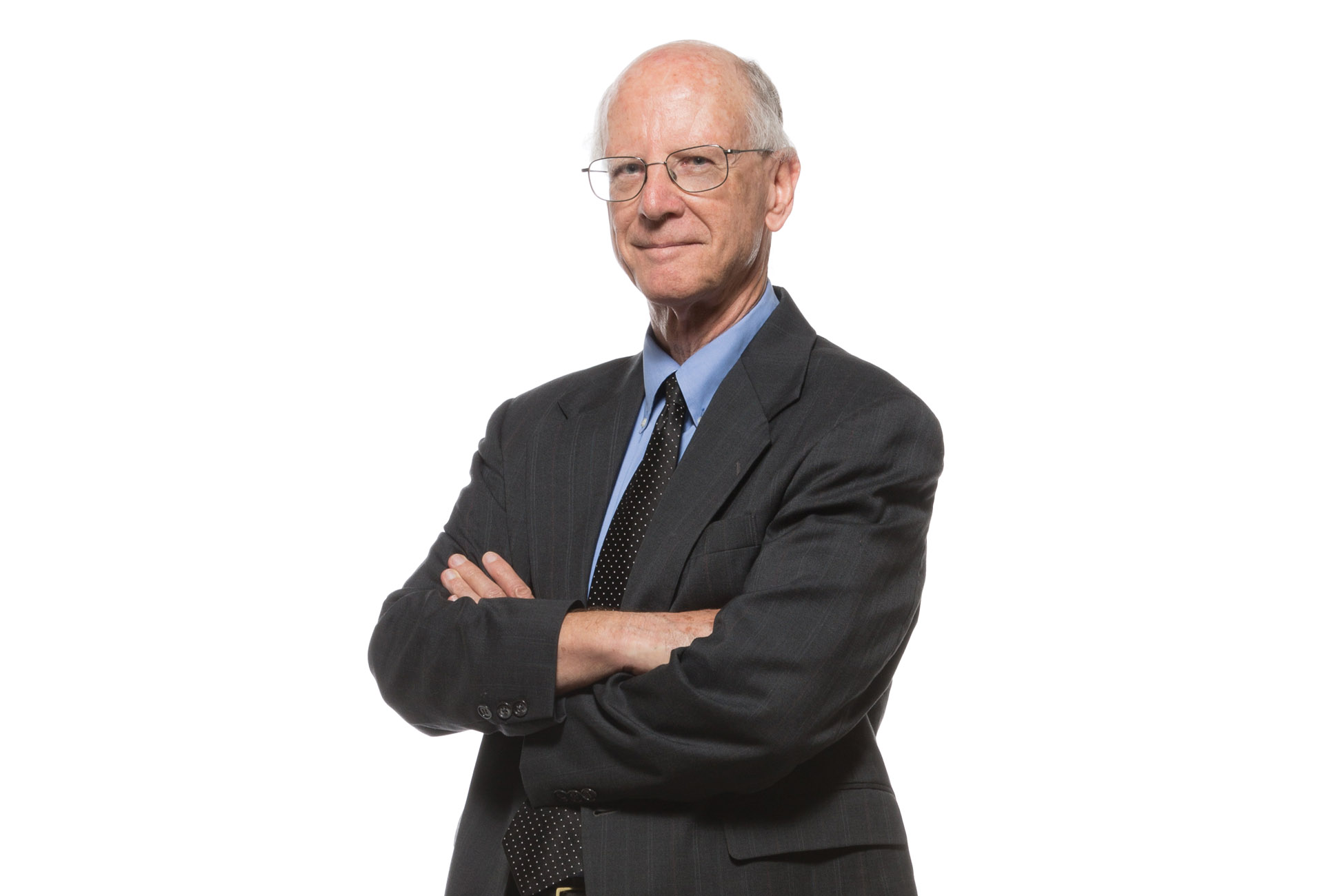The Pro Bene Meritis Award is the highest honor bestowed by the College of Liberal Arts at The University of Texas at Austin. First granted in 1984, it is given each spring to alumni, faculty and friends of the college who are committed to the liberal arts, have made outstanding contributions in professional or philanthropic pursuits or have participated in service related to the college.
Full name: James D. Garrison, B.A. English ’65, Princeton University; Ph.D. English ’72, University of California at Berkeley
Hometown: Bremerton, Washington
James Garrison is the Archibald A. Hill Regents Professor in American and English Literature and University Distinguished Teaching Professor at UT Austin. Garrison served as chair of the Department of English from 1994-2006, and is known for his dedication to the university and student success. He is author of numerous publications, including two books on the poetry of John Dryden. Garrison is an avid cyclist and has completed the 50-mile Hill Country Ride for AIDS for the past four years.
“Literature stretches our imaginations, invites empathy with others and encourages understanding of the full range of human possibility.”
Jim Garrison
You’ve said that your goal is to encourage your students to share your own love of great books. How do you define a “great book,” and how do you instill a love of them in your students?
I try to instill in my students a love for books that generations of readers have found compelling and rewarding, books that reflect—but also transcend— the time and place in which they were written. Don Quixote, for example, is the quintessential work of the Spanish Golden Age, but it has been translated into virtually every modern language because it speaks to something universal in the human condition—to our follies as well as to our aspirations and ideals. A book like Don Quixote is rewarding in another way, as well, in that it has inspired later writers—Flaubert in Madame Bovary and Dostoevsky in The Idiot, for famous examples—to address some of the same concerns. As students begin to see that reading one great book can put them on track for reading other great books, they are on their way to becoming lifetime readers—and that’s the real goal of all my teaching.
What can great literature teach us about the world?
One of my favorite passages in Tom Jones is the moment in an introductory chapter where Fielding imagines that long after he is gone he will be read “with honor” by those whom he would never know. When I think about this passage, I can’t help but regard great literature as a kind of miracle, offering us access to the words, thoughts, ideas, values and lives of men and women from different times and places. Sitting in our living rooms, we can open a book and be in the presence of another mind—that of John Milton or Samuel Johnson, for example, or experience another era—Virgil’s Rome, Dante’s Florence, Joyce’s Dublin. For this wonderful opportunity we should be very grateful because it provides us—not so much with knowledge of the world—but rather with an appreciation of how others have understood and experienced it. In this way literature stretches our imaginations, invites empathy with others and encourages understanding of the full range of human possibility. In my view, there can’t be anything more important than this.
You’ve been affiliated with UT for four decades now. What’s the biggest change you’ve seen at UT since you started teaching here?
I don’t see one big change so much as a number of small changes that have served to make the university a better environment for both teaching and learning than it was when I arrived on campus in 1973. Students come to UT as freshmen better prepared academically than I remember them from 40 years ago. They also benefit from more helpful orientation programs and from significantly better advising and mentoring. Improvements in the design of academic programs (at least the ones I’m familiar with) have also helped to provide more coherence to the educational experience. The curve, as I see it, is progressive, and I am very optimistic about the future of the university.
